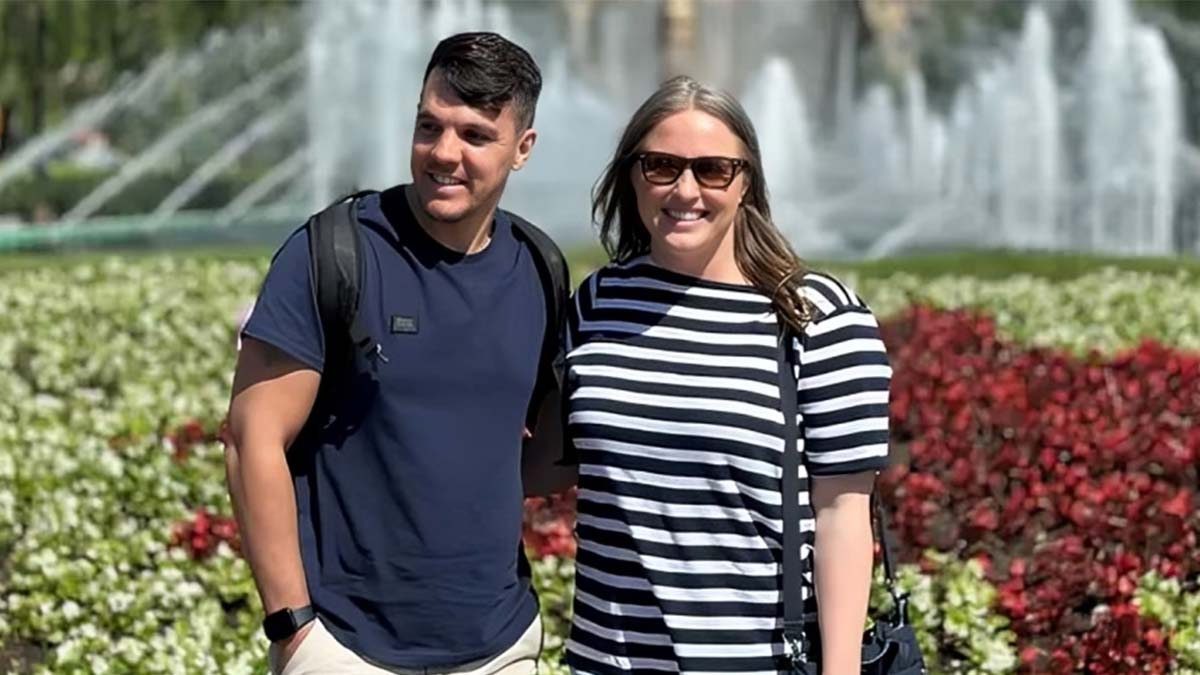Leaving felt bold, staying felt right, and Portugal looked like the perfect canvas for our plans. The sun, the rhythm, the promise of European stability all lined up. Yet small frictions piled up, then shaped bigger choices. We listened, we adapted, and we kept building. The horizon shifted anyway. One lesson kept returning, quietly and clearly : living abroad can open doors, yet it can also slow the future you want when crucial levers stay out of reach.
Finding our footing in a place that felt like home
In 2012, I left Canada with an EU passport and moved to Brussels. A marketing career grew there, and a Ph.D. followed. During a season in Rio, I met the man who became my husband. Around 2020, we chose Portugal together, convinced it could be the stable base for work and family.
Language helped. We both spoke Portuguese, and Lisbon linked our worlds with direct flights to Toronto and Rio. I prepared a swimwear label, Now in Rio Swim, and studied suppliers. Portugal’s textile know-how and steady sun looked ideal for design, production, and storytelling. The plan felt both practical and exciting.
We set roots. I launched the brand. We bought a fixer-upper near Lisbon to renovate over time. The dream took shape, then revealed trade-offs. I kept asking what we could gain next, because living abroad is more than scenery; it is paperwork, timing, and access. That reality sharpened each decision we faced.
When living abroad turns process into the real gatekeeper
The deeper we integrated, the more essential tasks dragged. I spoke the language, yet basic steps took repeat visits and stacks of papers. Opening a bank account required multiple trips. As a freelancer without a local contract, every proof of income sparked new questions. Progress stalled behind counters and forms.
Credit proved tighter than we expected. Without citizenship and a fixed contract, lenders saw higher risk. A mortgage application became a maze. Car financing did not pass. Business loans stayed out of reach. We finally obtained a single credit card, in my husband’s name, capped at €1,000. That ceiling shaped everything.
We adapted, cut costs, and paced growth. Then medical plans raised the stakes. IVF would cost thousands, and that €1,000 limit could not bridge the gap. Options narrowed. Work advanced, yet key levers stayed locked. I was 36, and three years had passed. The calendar mattered now, as much as the budget.
What stalled dreams feel like in real life
Numbers changed the tone. IVF meant medicine, appointments, and bills that arrive fast. In Portugal, loans were not available to us. Spreading payments on low limits was impractical. Savings helped, yet the runway looked short. The choice stopped being abstract; it became a timeline for our family.
Roots still mattered. We had a home project, a business in motion, and routines we liked. Friends cheered us on. The country’s beauty did not fade. Yet the sense of delay kept growing. I wanted a path I could trust month to month. The next chapter needed real financial tools behind it.
I missed home more than I expected. Family, community, and support systems kept calling. By late 2023, I asked my Brazilian husband to consider a move. He listened. We weighed every line item, every wait time, every form. The decision hurt, and it relieved us at once. We were going back.
How living abroad contrasts with coming home
The shift felt immediate. Tasks that dragged in Portugal cleared fast in Canada. I bought a car. A business loan allowed me to relaunch the brand with a stronger base. My husband settled in quickly. He secured permanent residency within six months, got a driver’s license, and started government-funded English classes.
Credit access changed everything. He received a card with a limit of several thousand dollars. I obtained a lower-rate card with a sizable limit as well. Cash flow eased, and planning improved. We could invest in inventory with less stress. We could time payments with confidence, then pay balances down quickly.
Health care steps aligned with our timeline. Within the first year, we advanced through IVF and became pregnant with our first child. At one point, I spent thousands on medications in just seven days. Higher card limits bridged that short window, and we paid them off fast. The system supported our pace.
What we carried forward, and what we chose to change
Canada is not perfect. I still miss Portugal’s light, food, and calm. The fixer-upper taught patience. The brand carries stories from both shores. Yet the everyday ease here shifts our ceiling higher. We can plan farther and secure credit when needed. We can build business and family together.
The European chapter did not fail; it revealed constraints. Access sits at the heart of momentum. Before a big move, test banking pathways. Ask lenders about non-citizen criteria. Confirm proof-of-income formats for freelancers. Price medical plans with realistic timelines. Map every gatekeeper because the process is the product in disguise.
Would I do it again? Maybe, with a sharper checklist and a longer runway. For us, the change unlocked what we needed most. We still love Portugal. We now trust the base we have. The dream adjusted, not disappeared. The work and the life finally run in the same direction — and living abroad taught us how to see that.
What choosing the right base taught us about time
We thought Europe was our forever home; it gave us lessons we now use daily. The move back gave us tools, speed, and space to grow. We keep the good, and we let go of friction. The next chapter feels lighter, and living abroad remains a teacher we respect, even as we build here.
